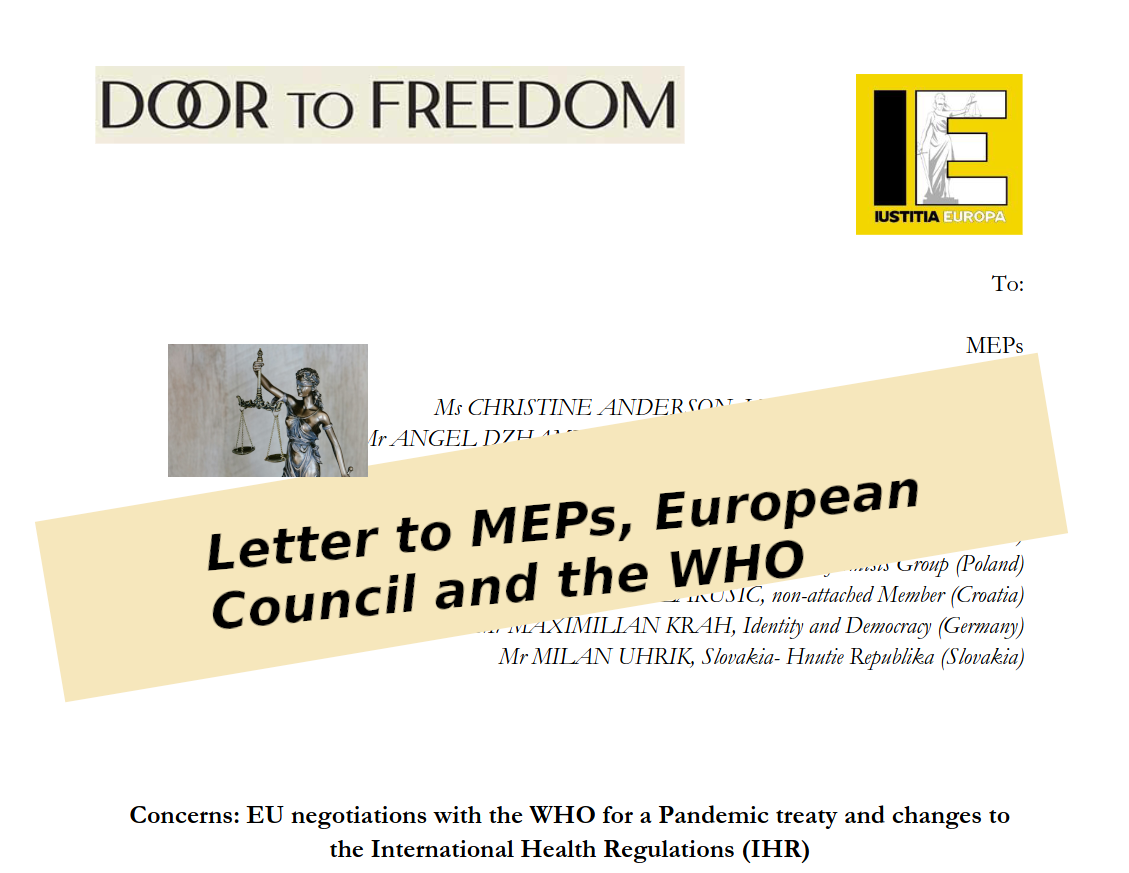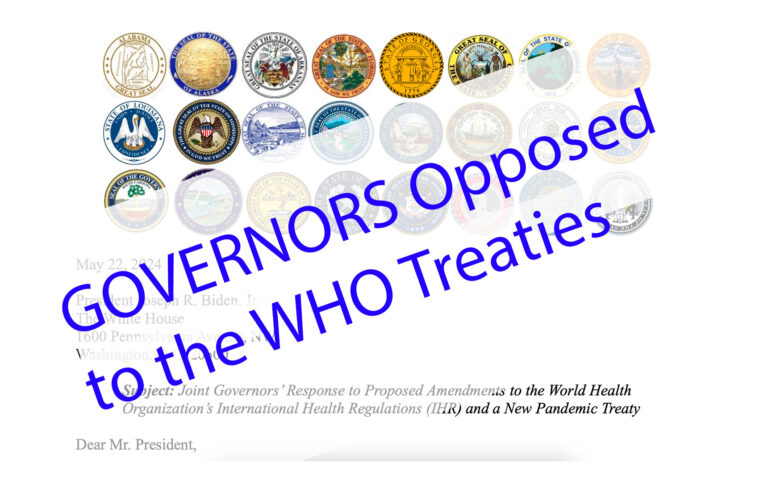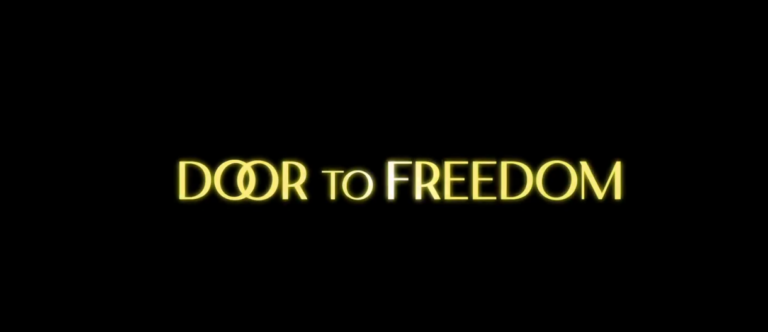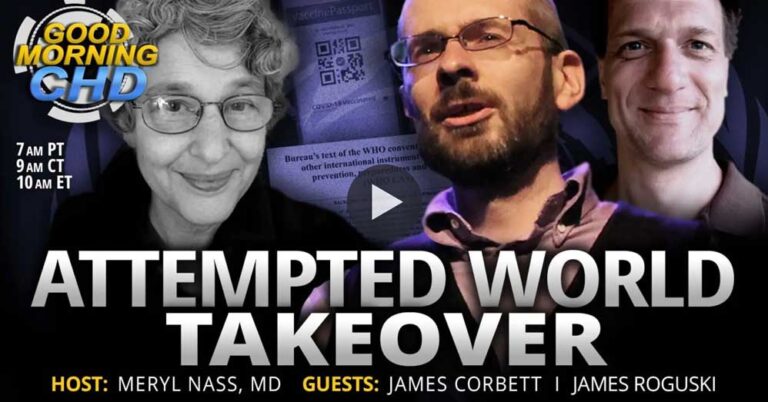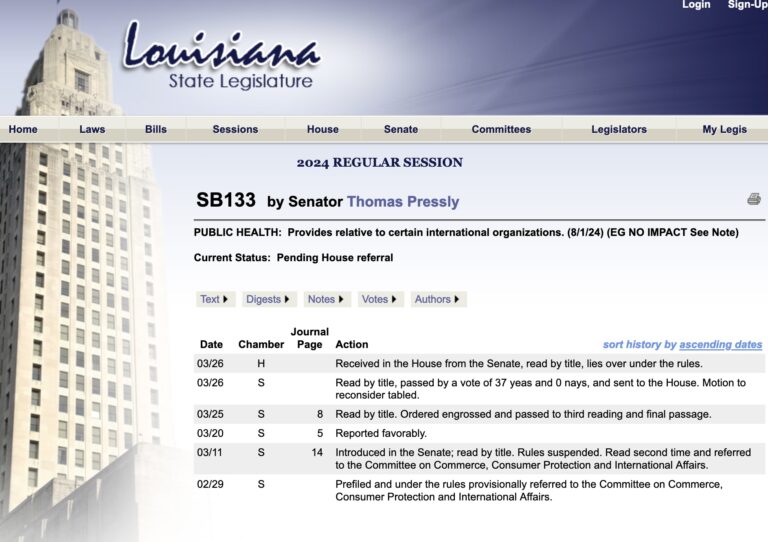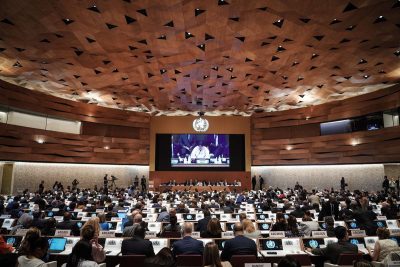Questions are asked of the letter’s recipients:
1) What is the legal basis that allows the EU to negotiate for member states with the WHO over the Treaty and Amendments?
2) What is the assurance that there will be no transfer of sovereignty?
3) What amendments have been proposed or rejected for the IHR?
4) If some aspects of the Amendments or Treaty fall outside the purview of the EU negotiators, how is this being resolved?
Movimento Iustitia Europa and Door to Freedom collaborated on a letter presented to Members of European Parliament expressing concerns about the competency/ authority of the European Union to negotiate on behalf of the individual European Nations.

